第6章 Chapter 2(1)
Formation and Progress of Wealth Man brings into the world with him certain wants, which he must satisfy in order to live; certain desires which lead him to expect happiness from particular enjoyments; and a certain industry or aptitude for labour, which enables him to satisfy the requisitions of both. His wealth originates in this industry: his wants and desires are its employments. All that man values is created by his industry; all that he creates is destined to be consumed in satisfying his wants and desires. But, between the moment of its production by labour, and its consumption by enjoyment, the thing destined for man's use may have an existence more or less durable. It is this thing, this accumulated and still unconsumed fruit of labour, which is called wealth.
Wealth may exist not only without any sign of exchange, or without money, but even without any possibility of exchange, or without trade. Suppose a man to be left on a desert island; the undisputed property of this whole island is not wealth, whatever be the natural fertility of its soil, the abundance of the game straying in its forests, of the fish sporting on its shores, or the mines concealed in its bosom. On the contrary, amid all these benefits presented him by nature, the man may sink to the lowest degree of penury, and die perhaps of hunger. But, if his industry enables him to catch some of the animals that wander in his woods: and if, instead of consuming them immediately, he reserves them for his future wants; if, in this interval, he gets them tamed and multiplied, so that he can live on their milk, or associate them to his labour, he is then beginning to acquire wealth, because labour has gained him the possession of these animals, and a fresh labour has rendered them domestic. The measure of his wealth will not be the price, which he might obtain for his property in exchange, because he is debarred from all exchange, but the length of time during which no farther labour will be requisite to satisfy his wants, compared with the extent of those wants.
By subduing those animals, the man has made them his property and wealth; by subduing the ground, he will, in like manner, convert it into property and wealth. His island is destitute of value so long as no labour has been bestowed on it; but if, instead of consuming its fruits the moment they come to his hand, he reserves them for future want; if he commits them again to the earth, again to be multiplied; if he tills his fields to augment their productive power, or defends them by inclosures from wild beasts; if he plants them with trees, the fruit of which he does not look for till many years have elapsed; he is then creating the value, not only of annual produce raised by his labour from the ground, but also of the ground itself, which he had tamed, as he tamed the wild beasts, and rendered fit to second his exertions. In that case he is rich, and the more so the longer he can suspend his labours without suffering new wants.
Our Solitary, being now liberated from the most pressing of all demands, that of hunger, may devote his exertions to provide lodging and clothes, or to improve those already provided. He will build himself a hut, and fit it out with such furniture as his unaided labour may suffice to construct; he will change the skin and fleeces of his sheep into shoes or coats; and the more convenient his dwelling shall be rendered, the better his storehouse shall be filled with provision for his future food and clothing, the more rich may he call himself.
The history of this man is the history of the human race: labour alone has created all kinds of wealth. However great the beneficence of nature, she gives nothing gratuitously to man; though, when addressed by him, she is ready to lend her assistance in multiplying his powers to an indefinite extent. The history of wealth is, in all cases, comprised within the limits now specified - the labour which creates, the economy which accumulates, the consumption which destroys. An article which has not been wrought, or has not mediately or immediately received its value from labour, is not wealth, however useful, however necessary, it may be for life. An article, which is not useful to man, which does not satisfy any of his desires, and cannot mediately or immediately be employed in his service, is not more entitled to the name of wealth, whatever labour may have been bestowed on producing it. And finally, an article which cannot be accumulated or kept for future consumption is not wealth, though created by labour and consumed by enjoyment.
Before possessing any medium of exchange, before discovering the precious metals which render it so easy to us, our Solitary would ere long learn to distinguish the different kinds of labour in their relation to wealth. Labour producing no enjoyment is useless; labour, whose fruits are naturally incapable of being stored up for future consumption, is unproductive; whilst the only productive kinds of labour - the only kinds producing wealth - are such as leave behind them, in the estimation even of our Solitary, a pledge equal in value to the trouble they have cost.